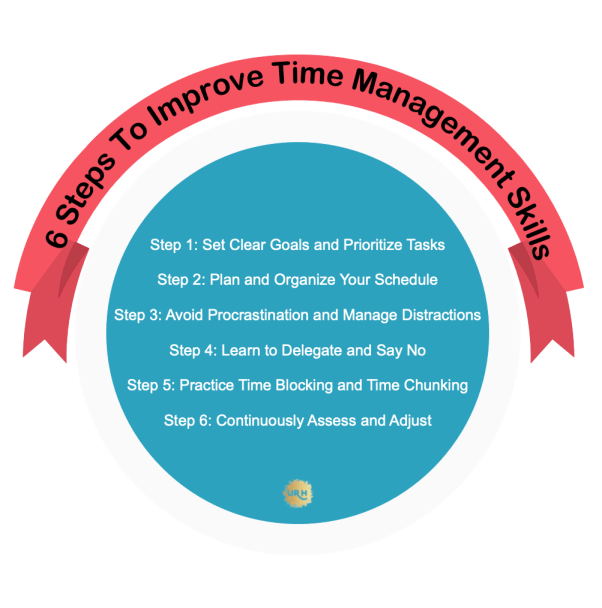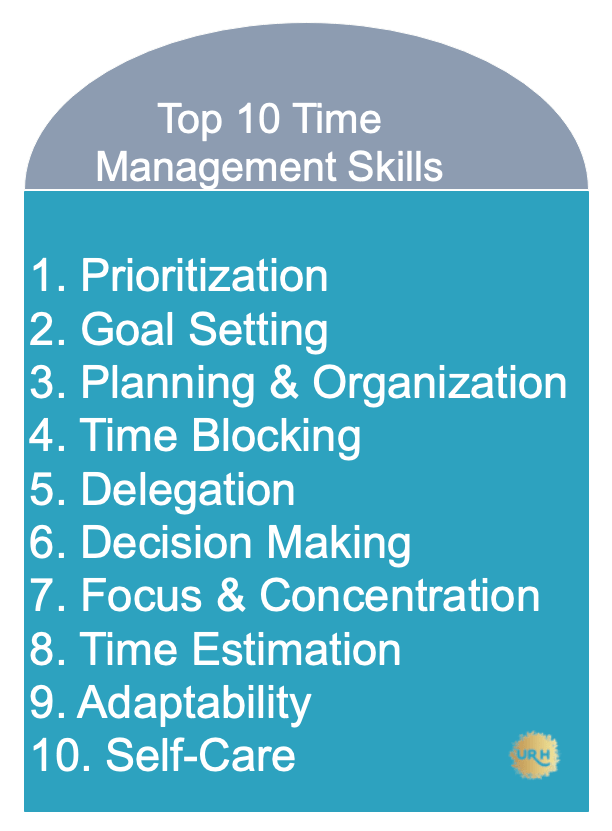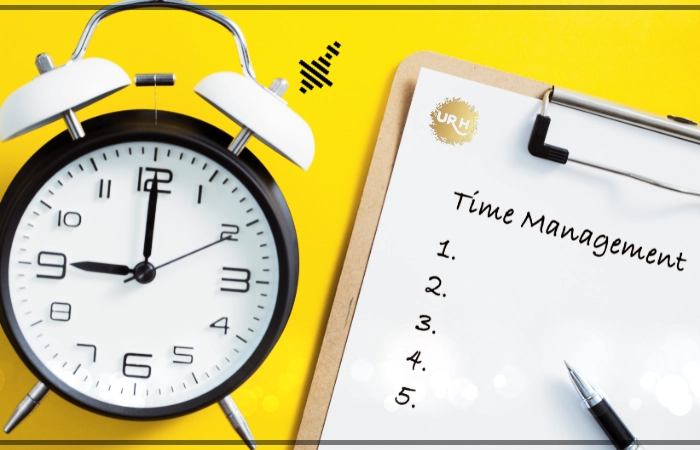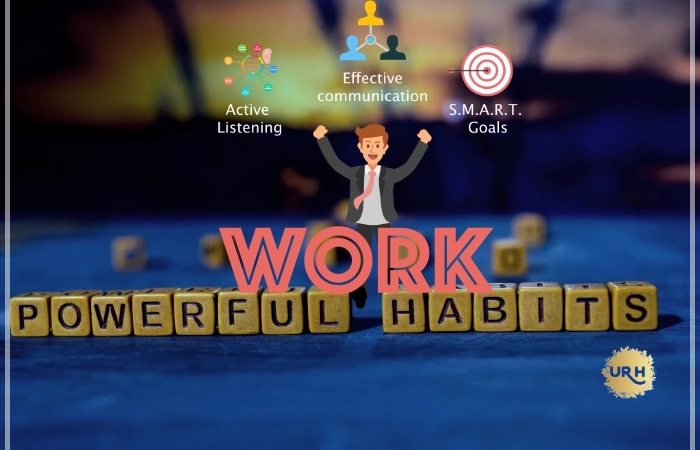How To Improve Time Management Skills – 6 Best Ways To Do It
In today’s busy world time management has become an important skill for each one of us. If you are looking for how to Improve time management skills, let me tell you, you and I will go through the six steps together and find out best way to Improve your time management skills .
Since time is important and everyone has only 24 hours, we all need to manage it wisely.
The list is increasing where you have to take an appointment prior to meeting someone or doing something, have you ever thought of why?
So, in order to know how to Improve time management skills, it is essential for you to also understand the concept of time management.
What is Time Management ?
Time management is the process of systematically planning how to divide your time between different activities that you want to carry out.
If you are able to do it successfully you will do smarter work to get more things done in less time.
The people who do exceptionally well, manage their time more efficiently than others.
So, if you realise we all are doing time management one or another way, it is a very fundamental skill that we all have, but the question is do you know what is required to use it the right way?
So, Effective time management will help you to carefully plan and organise your schedule (Like morning activities, and your Job/Study time requirements) to ensure that you allocate enough time and attention to complete those tasks.
How to Improve Time Management Skills?
Improving your time management skills is a process and it will take your time and effort, but Yes, it is possible

Step 1: Set Your Goals Using Clear And Do Task Prioritisation
You can start by setting clear goals (Next 3 months & 6 months targets) and identifying the tasks that will contribute most significantly to their achievement.
Now break down your larger goals into smaller, manageable tasks, with milestones attached to them, so once you successfully complete them you know what to expect next.
For example, if you have a project deadline approaching, prioritise working on it over less time-sensitive tasks.
Step 2: Plan And Organise Your Schedule
You can use a planner or task management app to create a structured plan for your day/week, or month goals, this will help to organise tasks and time.
By allocating specific time slots for different activities, including work tasks, personal commitments, and breaks you can achieve more.
Ensure that your schedule reflects your priorities and allows sufficient time for each task.
Remember to be realistic in your time estimates to avoid over committing.
Step 3: Avoid Procrastination And Manage Distractions
So, procrastination and distractions are common productivity enemy/killers.
Taking small breaks during the study will help you to gain your concentration back. But do not prolong your breaks without realising you will fall for procrastination.
So, watch your breaks closely and get back to your study session. Turn off notifications on your phone and block distracting websites.
For instance, designate specific times to check emails and social media rather than constantly interrupting your workflow.
Step 4: Learn to Delegate And Say No
Prioritize tasks based on urgency/importance, and learn how and when to delegate. You can delegate tasks that can be handled by others, which need minimum supervision (mundane activities).
Additionally, learn how to say no to less important tasks or commitments that do not need your time.
Step 5: Practice Time Blocking And Time Chunking
Time blocking involves assigning specific blocks of time for particular activities or categories of tasks.
For example, you might allocate a two-hour block for focused work on a project.
Time chunking involves grouping similar tasks together and completing them in batches.
For instance, you can dedicate one block of time to replying to emails, another to conducting meetings, and another to taking interviews.
Step 6: Continuously Assess And Adjust
You can regularly assess your progress against your goal plan/To-do list during the day and make adjustments to your time management strategies (allocate more time to priority tasks).
Take some time to understand what is working well for you, this will give you a chance to avoid those activities which are not producing desired output aligned with your goals.
What Is The Importance Of Time Management?
So, time is one of the most precious thing we all have. And if you learn to manage it well, you can actually manage your life well.
1. Enhanced Productivity:
You learn to set your priority for your daily tasks and ensure that you allocate enough time and attention to complete those tasks.
By setting priorities you know which task to do first and setting clear goals will help you to progress toward your goals and finally achieve them.
2. Reduced Stress:
So, if you do not learn to manage your time well you will always be at risk of missing your commitments/goals.
These missed deadlines will create additional pressure and stress on you.
So, by organising your tasks (To-do list, Calendar), setting realistic deadlines, and planning ahead, you can reduce stress.
3. Improved Focus and Concentration:
Break tasks into smaller activities that are durable in a certain amount of time, this will increase your chances of completing your task on time.
This will also help to avoid distractions and allocate specific time slots to each task, by doing this you can give your undivided attention to the task at hand.
4. Better Decision Making:
When you set priorities for your daily tasks and ensure that you allocate enough time and attention to complete those tasks.
Now, you are not in hurry and have ample time to analyse options, weigh pros and cons, and consider potential outcomes, this way you make more informed and thoughtful decisions.
5. Overall Well Being and Quality of Life:
You need more time to do the activities you enjoy, so the answer is time management.
So, whatever time you are able to save (like by delegating some tasks) is a bonus and you can utilise it for things you like to do (Your hobby).
Top 10 Time Management Skills:

- Prioritization
- Goal Setting
- Planning and Organization
- Time Blocking
- Delegation
- Decision Making
- Focus and Concentration
- Time Estimation
- Adaptability
- Self Care
FAQ – How to Improve time management skills
How can I prioritize my tasks effectively?
You can assess their importance and urgency by use some tools if required to categorize tasks as urgent, important, not urgent, or not important.
How to manage distractions?
You can manage distractions by, creating a dedicated work environment, turning off notifications on your devices, and using website blockers if needed.
Minimize multitasking and allocate specific time for checking emails or engaging with social media.
3 Ways to improve decision making skills?
You can improve your decision-making skills by, gathering relevant information (Reports, research papers), considering pros and cons, and evaluating potential outcomes (more aligned with your goals).
What are ways to overcome procrastination?
To overcome procrastination, break tasks into smaller, manageable parts.
You can set specific deadlines for each subtask to create a sense of urgency.
How can I effectively manage my time ?
Try delegating tasks that can be handled by others.
Regularly assess your schedule (To-do list), and make adjustments if required in priority tasks.
Conclusion:
Time management has many benefits like you can accomplish more tasks on a daily basis, reducing stress by achieving your deadlines. But remember it needs learning before you master it.
Choose one aspect of time management that resonates with you and commit to implementing it.
So based on your needs and situation, identifying and prioritising tasks based on their importance and urgency is important.
I suggest, implement any of these above suggestions in your own way and let us know your experience in comments below.
Let us know your way of time management in comment section below.







